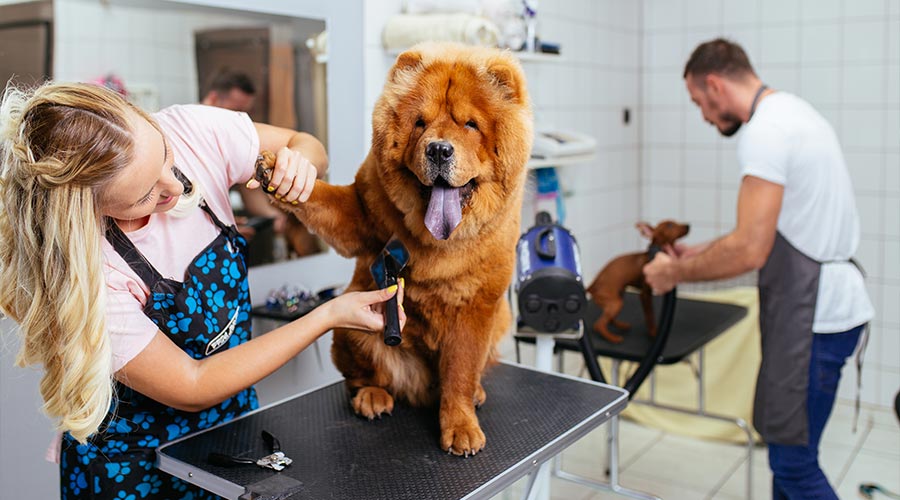As a pet groomer, you enjoy spending time with pets and making them feel and look their best. There are a few essential qualities that every pet groomer needs to have if they want a successful career. It takes hours or hard work and practice to do what you do. Pet Care Insurance wants you to succeed at your career, so we’ll share with you those four qualities that every pet groomer needs.
4 Qualities That Every Pet Groomer Needs

Facebook
Twitter
LinkedIn
Reddit
Annual Dog Groomer Insurance Policy
This policy is for professionals who work in the pet care industry.
Starting at:
$255
or $23.03/month
Not ready to purchase at this time?
Set a reminder to come back at a more convenient date.
Contact Info
7:00am – 5:00pm MT | Mon – Fri
Call: 844-520-6990
Email: info@petcareins.com
About the Author

Pet Care Insurance Content Team
We’re a group of pawsitively passionate writers and pet owners! You care about your furry friends, and so do we—that’s why we want your pet care business to grow and thrive. Our goal is to help you learn about starting, growing, and protecting your business. Let us make insurance make sense so you can worry less about the next cat-tastrophe and focus on what really matters.
We’re a group of pawsitively passionate writers and pet owners! You care about your furry friends, and so do we—that’s why we want your pet care business to grow and thrive. Our goal is to help you learn about starting, growing, and protecting your business. Let us make insurance make sense so you can worry less about the next cat-tastrophe and focus on what really matters.

